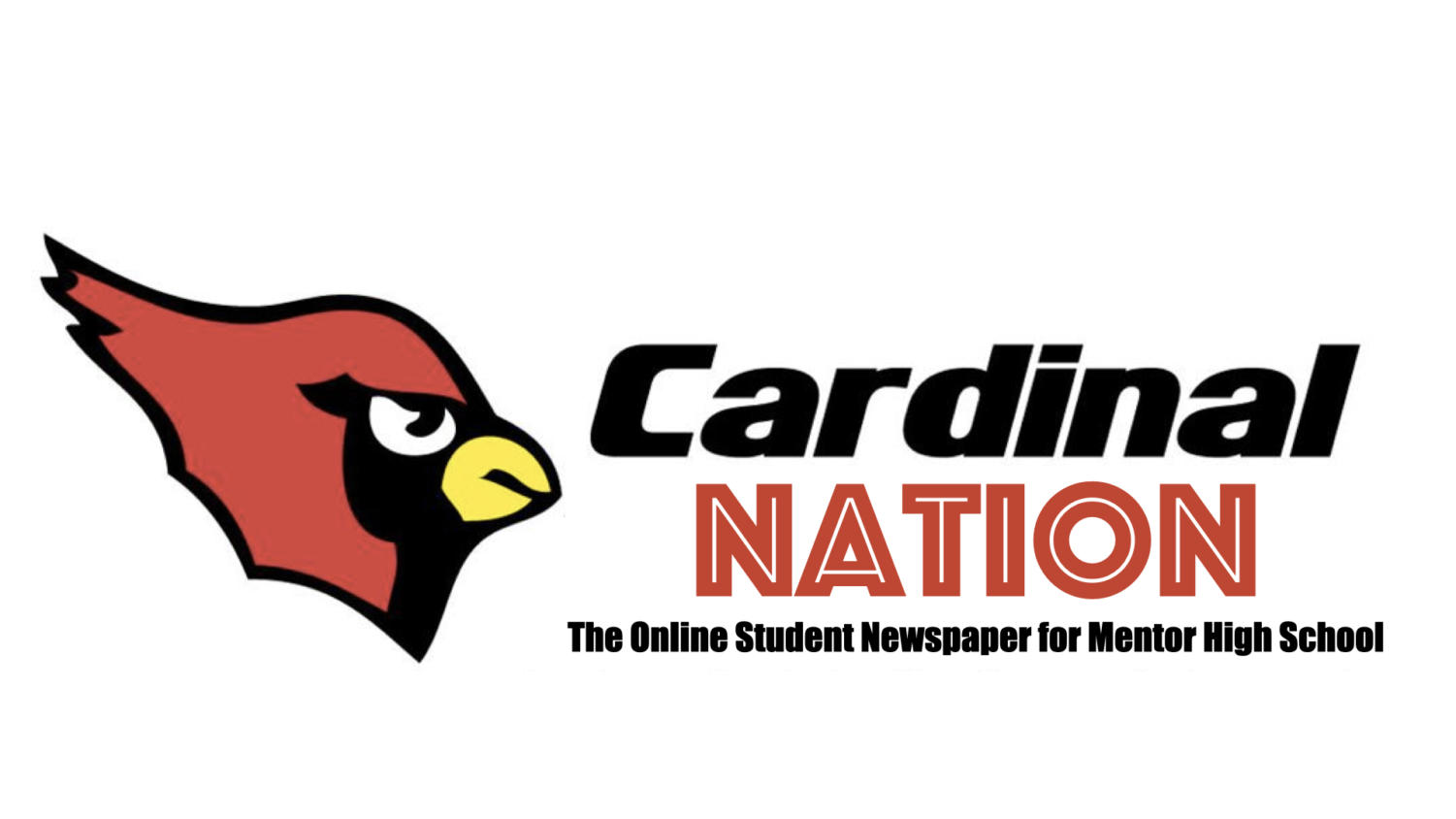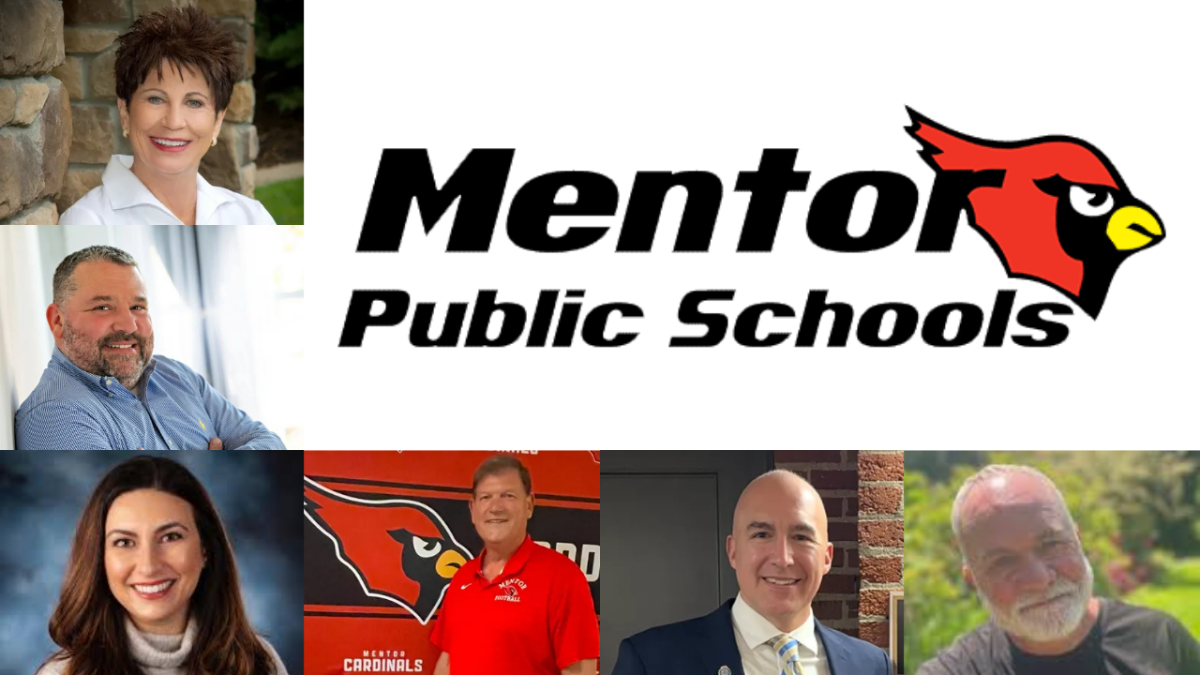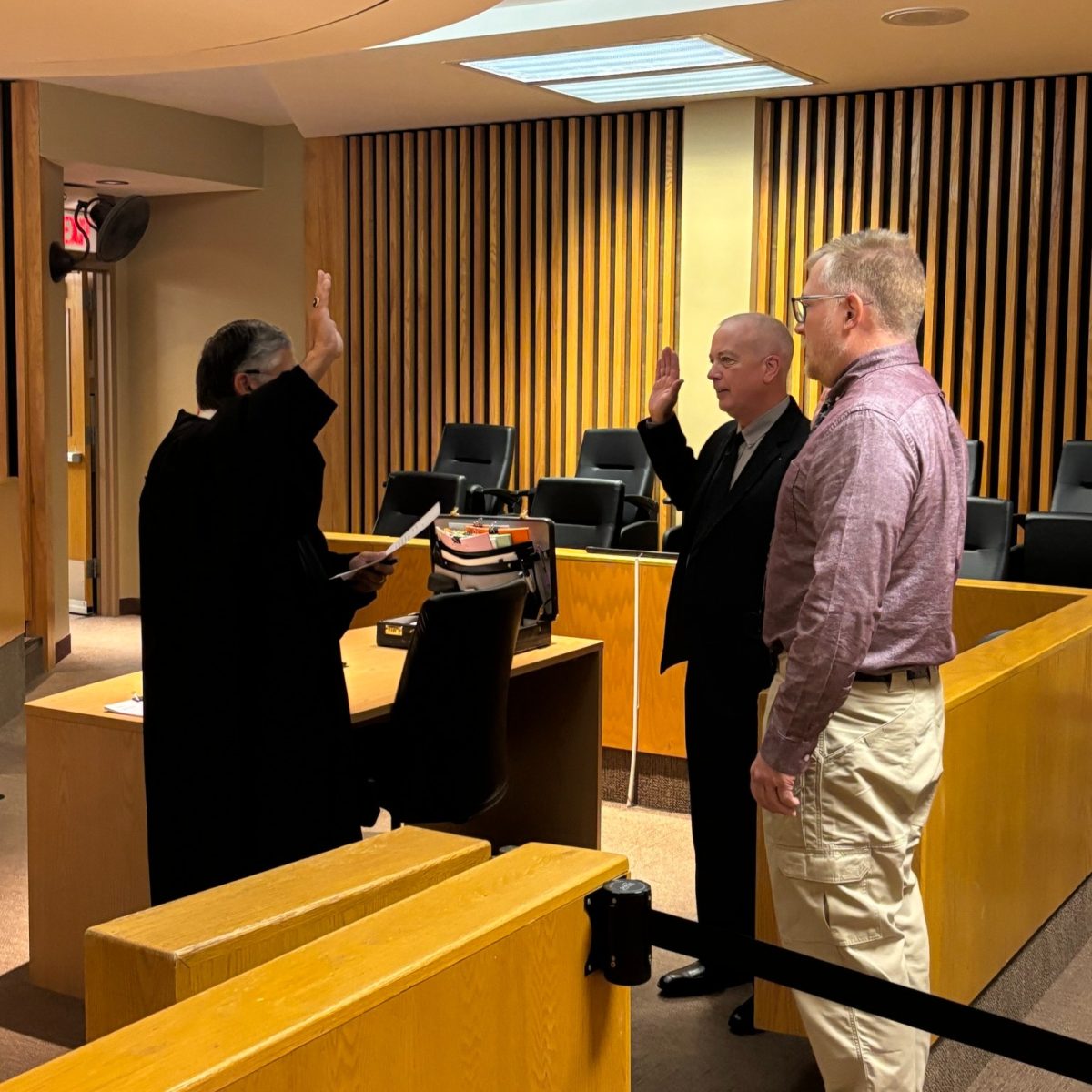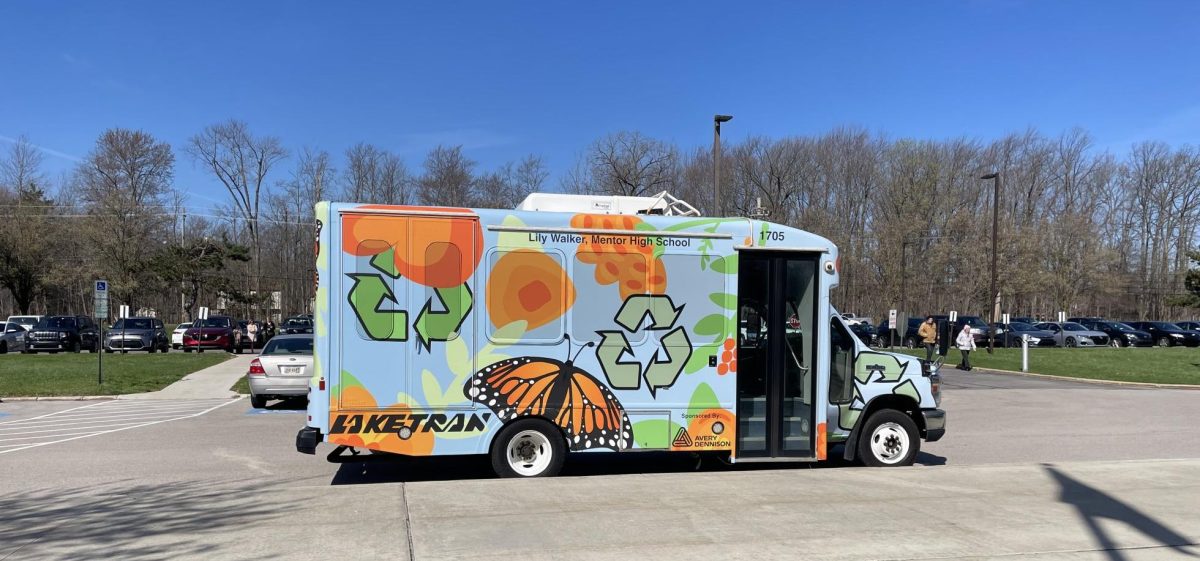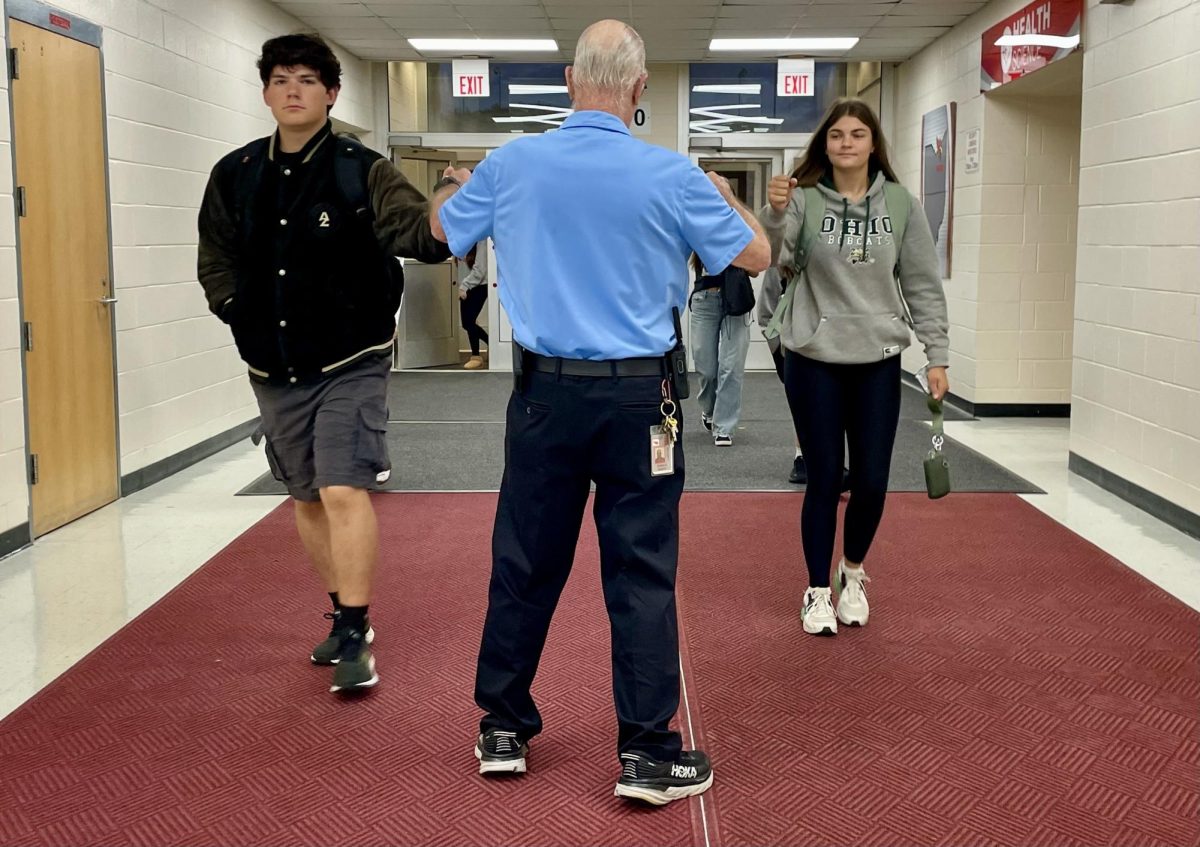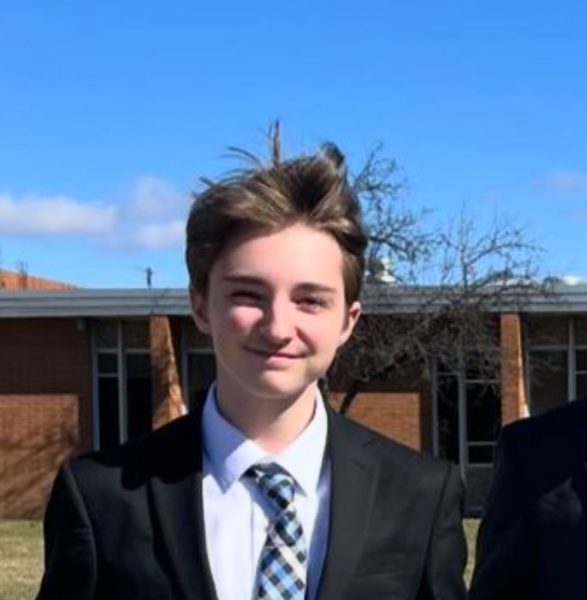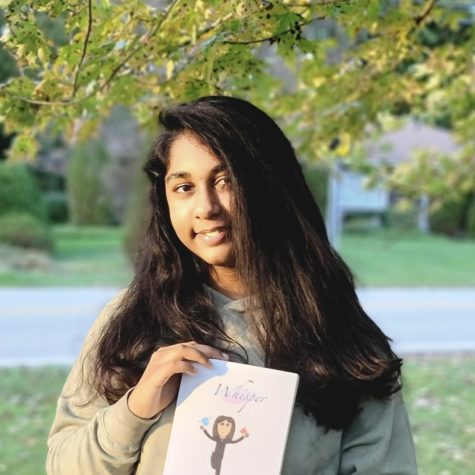This year, six candidates are campaigning for their spot in three open Mentor Public Schools Board of Education spots. Each elected Board Member will serve a 4-year term alongside existing Board Members Rose Ioppolo and Lauren Marchaza, both elected in 2023. The terms of Board Members Annie Payne, Maggie Cook, and Virginia Jeschelnig will all expire at the end of the 2025 term. Registration to vote closed on October 6th, but early voting starts October 7, and Election Day is November 4th with in-person voting from 6:30 a.m. to 7:30 p.m.
Cardinal Nation reached out to all six candidates on issues surrounding the Mentor School District. The unedited verbatim responses of candidates who responded by a given deadline are included below, in alphabetical order.
Cardinal Nation: Why are you running for Mentor’s Board of Education?
Cook: I am passionate about ensuring that Mentor Schools provide the best educational opportunities for all students. Education is my life’s work. I am in my 25th year as a speech-language pathologist for Chardon Schools, and I know that strong policy and supportive leadership guide a district to success. It has been an honor to serve Mentor Schools as a board member for the past four years. I am proud of the current progress in our district, and I look forward to the future.
Haag: I was recruited by several members of the community who care deeply about Mentor Schools. They believed that I could be helpful in the current school board environment with my extensive experience in the district. As a long time Mentor resident and employee, I feel fortunate to have an opportunity to give something back to the school system and community that has been so important in my life for the past 60 years.
Hardesty: I chose to run for school board based on my family’s educational experiences and my growing frustration with the dysfunction that I have witnessed at our board meetings. My three daughters started their education at a Catholic School on the west side of Cleveland – my wife and I had always agreed that we would send our future children to a Catholic School and purposefully sought out a neighborhood that included that option. As time went on it became apparent that our private school did not have the resources or inclination to provide the education we wanted for our girls. In 2019 we made the decision to move to Mentor based on the quality of the schools and the resources available. All three of my girls have had great teachers and counselors, the first two staff members my girls met remain special to our family. Claire has received great IEP management and just this year has moved from an IEP to a 504 – I credit her teachers and staff for making that happen. Mallory has thrived academically and is currently enrolled in two AP courses, and Jane has earned AP Scholar with Distinction and AP Capstone going into her Senior year. I chose Mentor for my family, and I believe it is important to keep Mentor a top choice for families seeking new communities. The current board meetings are unacceptable. Mentor is a good community and a great district and the lack of professionalism, the antics, the “gotcha” moments – these do not reflect the values I have witnessed from the schools, students, and families in Mentor. I can’t stand on the sidelines when Mentor needs serious, pro-public education, civil and collaborative board members. Our kids, our schools, and our community deserve better and I want to bring change and set a good example for our students because they will be leading things one day.
Izzo: The reason I am running for a position on the Board of Education is simple – I believe I can help. Caring and experienced leadership needs to be a focus of any organization in order to effectively promote positive culture change. As the Chief Deputy of the Lake County Sheriff’s Office, I have experience leading a large organization through challenging times. I want to bring the same type of focus on effective leadership principles to the Mentor School District.
O’Brien: I am running for Mentor’s Board of Education because every child is deserving of the best possible education. Mentor’s students will be the future guardians of America’s freedom and it is important that they are purposeful and productive citizens. For the past five years while I have been a Mentor resident I have regularly attended School Board meetings and the dysfunction of the current Board is very concerning. Until recently my granddaughter was a Mentor student and her experiences with bullying are very concerning.
Schutz: I believe deeply in the power of opportunity. Throughout my career in teaching and coaching I’ve been privileged to help students grow through meaningful experiences. I remain passionate about helping every student become the best version of themselves.

Cardinal Nation: What qualifications do you have that make you the best candidate?

Cook: For the past four years I have served on the Mentor Board of Education, elected as the President for the past two. In this time we have rewritten every policy to ensure that they are consistent and clear, we conducted a superintendent search and hired Mr. Heath, created a new strategic plan with more community input than ever before, increased safety in the schools, and created and implemented a plan to cut $2 million dollars each year of our 5-year plan to operate with fiscal responsibility. Throughout these experiences I have learned about district leadership and I am ready to build on this knowledge. As a public school educator, I bring educational experience with a particular focus in special education. I understand the support that students, families, and staff need to be successful and I will diligently pursue solutions. My experiences as an educator, a mom of Mentor School students, and as a current board member, makes me a devoted candidate that will work for the betterment of our district.
Haag: I was a student at Hopkins, Memorial and Mentor High. I graduated from Mentor High in 1977. I graduated from Ohio State with a degree in finance and returned to Mentor as a teacher, coach, parent, unit principal, principal at Bellflower, and Director of Elementary Education. I have a Master’s Degree and Educational Specialist degree from Cleveland State. While working for the district I made difficult decisions during the financial crisis in 2003. I have been responsible for fresh ideas, from the first Chinese language program in Lake County to the Cleveland Opera on Tour at Bellflower.
Hardesty: It may not seem like an obvious answer, but being relatively new to Mentor makes me a great candidate for the board of education. It’s not a qualification per se, but an approach that is not mired in nostalgia nor long held grievances, is something that a deeply divided board can benefit from. In my career, I have interviewed, hired, onboarded, mentored, and managed dozens of employees. I know what employers are looking for in job candidates and I know the skills, both technical and soft, that can help a person build a career. My current team at work includes employees from various states throughout the country, giving me a unique understanding of qualities that are universal in appeal to businesses. Organizations only work well when leaders are respectful, professional, and take their work seriously. I will lead by example and recommend boundaries and expectations for the entire board. Our students, our staff, and our community deserve nothing less than board members who act in good faith, behave civilly, and both understand and honor the gravity of their position. I have performed evaluations of not only employees, but also of processes constantly in the past ten years and I am adept at prioritizing strengths, weakness, and areas of growth. I have years of data analysis experience and budgeting responsibility that will be a significant asset to the district. My career has been successful not only because of my aptitude for problem solving and focus on the bottom line, but because I am willing to collaborate, can admit I don’t have all the answers, and am willing to go to my peers for information and ideas. Above all, I have a passion and deep respect for public education and I can think of nothing more essential than preparing our students for successful futures.
Izzo: I am the only candidate for this position with expertise in school safety and security and the background in working with a large-scale publicly funded budget. When that is coupled with my experience working with school administration and faculty and my existing relationships with local officials, I bring a very unique perspective to the Mentor Board of Education. I will use that perspective to creatively tackle the issues confronting the Mentor School District.
O’Brien: I earned a Bachelor’s degree in Psychology from Ursuline College and a Masters in Organizational Development & Analysis from Case Western Reserve University. College degrees provide the basic information and open the doors to career experiences that add depth to knowledge and expertise. My corporate experience spanned 15 years and advanced from Human Resources to General Management ultimately preparing me for my consulting career focused on creating positive cultures that maximized productivity and profit. The skills I gained can be applied to improve student performance and growth, build a culture of respect and achievement plus maximize the results of the taxpayer’s investment.
Schutz: My background includes over 33 years as a classroom teacher and 41 years of coaching various sports, genders, and age levels. These roles have given me a deep understanding of student development, teamwork, leadership, and the challenges faced by educators, students and families in our community.
Cardinal Nation: What do you think is the biggest challenge facing this district, and what is your plan to address it?
Cook: Mentor Schools is fortunate to have ardent public school supporters and staff dedicated to accountability, however the biggest challenge facing our district is the uncertainty of school funding. In 1997 school funding in Ohio was ruled unconstitutional by the Ohio Supreme Court. In response, state legislators created and adopted the Fair School Funding Plan. This plan began being implemented during the 2021-22 school year across Ohio, with a six-year phase-in period to fully fund public schools. Unfortunately, our elected officials in Columbus have not continued to support each phase of this rollout and it has created an additional burden on the property owners. The current formula uses historical data (e.g., teacher salaries, benefits, inflation) that do not reflect recent increases in costs. As costs rise, districts are often left covering those extra burdens without matching increases in state support. As a board member we must be fiscally conservative and I intend to do this. I have served as a liaison for our district’s Financial Advisory Committee, a group of financial experts who review our finances and help guide our decisions for three of my four years on the board. I listen to their perspectives and that of our CFO, Mr. Wade. We have implemented cuts of $2 million dollars from our budget over each year, made staffing reductions, and adopted cost saving benefits programs. We have made changes to our permanent improvement plans on facilities and we continue to seek additional forms of revenue. As a board member these decisions are important and they must be balanced with a knowledge of how schools work to minimize the classroom impact. I have advocated for funding for public schools at the state level and I voted to pass a resolution that supported the Fair School Funding Act. If reelected I will continue to advocate for public school funding, maintain fiscal conservatism, and advocate for additional revenue when it is needed.

Haag: There are many well documented challenges that all schools in Ohio are facing, including the current difficulty in getting bus drivers which is affecting everyone. In Mentor we have done a good job tying our budgeting to enrollment projections, and carrying over funds from year to year within established guidelines as a precaution against funding threats. Looking to the future, we must be proactive and creative in using the best ideas around the country, working with our community partners to stay ahead. This requires a true partnership around the board table, a willingness to reach consensus, and a spirit of bipartisanship on behalf of the students, school staff and parents.
Hardesty: The number one challenge Mentor Schools are facing is public school funding. It is a precarious time for public education – that is not a political view, it is simply doing the math. I will demonstrate and advocate for a pro-public-school mindset on the board. The district is responsible for providing students with an education and preparing them to succeed in life – that is no small thing, and all decisions have to be made with thoughtfulness, commitment to education for all students, and serious consideration about funding. I plan to address the ongoing challenge of state and federal financial support by prioritizing the needs of the district. Academics will always come first, with instructional time, evidenced back curriculum, and teachers being the three non-negotiables when it comes to potential budget cuts. Accurate and easily communicated data will be needed at every turn. The district is fortunate to have a CFO who provides great detail in his reporting and I can assure you, I will look at it closely and formulate possible solutions. It is important to ask questions about why the numbers are what they are, but it is critically important to understand the numbers and future projections inside out so that the board can plan ahead and take action. The impact of the state’s 2026-27 biennium budget is significant and well I may have a gut response to the consequences for students, especially those with disabilities and low-income students – as a board member, I will rely on data and evidence to build consensus. It is imperative that the board make clear that budget cuts will negatively impact property values, business growth, and resident retention and attraction.
Izzo: The biggest challenge facing the school district is very clearly the uncertain future of property taxes in Ohio. Throughout this county, the funding public schools receive from property tax is more than double the funding districts receive from the state. I have been following this topic very closely along with our Board of County Commissioners and our County Auditor and it seems certain some change is coming. We need to be considering alternate funding sources at the local and state level and continuously lobbying our representatives in the general assembly ensure there is a plan in place to replace revenue which may be lost by property tax reform.
O’Brien: As I write this I can’t help but think about the young student that recently committed suicide at Willoughby East. The bullying must STOP! What is being done is not enough. I have reviewed the discipline policy and it is grossly lacking and worse yet what does exist is not being enforced. There must be zero tolerance for bullying behavior. A commitment to address and enforce a progressive discipline policy must be made by all levels of leadership. As a result, Mentor schools will be much safer for the students and teachers.
Schutz: I believe there isn’t just one single biggest challenge—we’re facing several critical issues that need to be addressed. Below are five key challenges that I believe require our immediate attention:
- Balancing academic excellence with fiscal responsibility
- Supporting student mental health and well-being
- Ensuring school safety and inclusive education
- Strengthening trust and engagement with the community
- Addressing aging facilities and infrastructure
Cardinal Nation: With potential cuts at the state level to our district budget, what do you think is the best way to ensure educational quality?
Cook: As a board member, my most important responsibility is to ensure that every student has access to a high-quality education, regardless of the financial challenges we face. We must make thoughtful and deliberate budgetary decisions by being well informed on the impact of each decision. At the board table I have pledged to save $2 million dollars yearly and this will mean looking at efficiencies in operations, reviewing contracts for services and technology, and pursuing grants and community partnerships. Every dollar we save in overhead is a dollar we can reinvest directly into the classroom. In addition to making fiscally conservative decisions, a board member must educate the politicians who allocate funding for public schools on the impacts of their decisions. It is also important that the community members are informed on how our district is making financial decisions so that they are confident in supporting our levies.
Haag: The financial crisis in 2003 was caused by continuing to expand programming in a time of decreasing enrollment (and therefore funding) as well as waiting too long to seek an operating levy. Today, the system responds to enrollment projections proactively and has created a role for citizens in the community with financial skills to advise and consent with budgeting. The art of curriculum management is to build on forward thinking ideas while taking a hard look at existing programs. This is extremely difficult. The best schools balance the passion for new programming with a dispassionate resolve for cutting other programs to take the system forward. Seeking operating funds is a story. We need to be able to tell the story when additional funds are needed in a clear, concise and imaginative way. The story was not well told regarding the Permanent Improvement Levy that we lost last year.
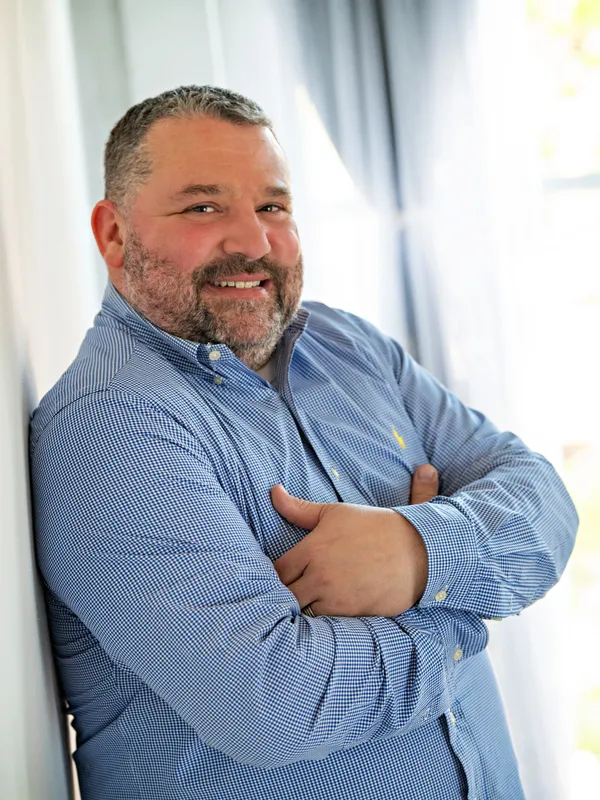
Hardesty: Cuts to public education funding will require the Mentor School District to make tough decisions and they will need to be made very intentionally. The first step will be to decide what our priorities are as a school district. The top priority will always be academic excellence and to honor that, I will put instructional time first, emphasize the need to invest in our educators, and carefully consider the cost and value of educational materials. Core curriculum comes first – but I will also advocate for maintaining art, music, and athletic programming, as they are proven to not only build skills, but build self-esteem, allow students to be challenged, and, often, discover talents and interests that they would otherwise not have discovered. In addition to careful budgeting decisions for both the long and short term, the district will have to explore other funding streams. CTE programming is an excellent example of how private dollars can support education and I will advocate for a full and creative exploration of how we can build relationships with businesses and other entities to help bridge the gap in funding the state has created. I would also explore how we can work with other districts and possibly private schools to share resources, allowing us to gain the full value of available tools and curricula while sharing the expense. I am a tireless advocate for public education and I will continue, if elected or not, to ask for elected officials at the local, state, and federal level to fully invest in our students and our public school systems.
Izzo: As I noted above, this is the most important issue on which the Board of Education should be focusing. We have an obligation to navigate the funding challenges ahead while maintaining awareness of what makes Mentor Schools great. Whether it is in class offerings or extracurriculars, Mentor Schools truly have something for every student. Cutting programs, classes or extracurriculars will be last resort. We may face cuts in funding, but if we will be far more creative in facing those issues than simply cutting classes, programs and extracurriculars which make this district great.
O’Brien: Mentor touts a 4.5 star rating yet the test results are embarrassingly unacceptable. The current scores in numerous areas across the grades are lower than pre-Covid – I believe that some are the lowest ever! Academic achievement has no where to go but up and I am confident that a safer environment that focuses on core learning rather than being distracted by numerous special interest activities will bring about significant improvement.
Schutz: I will advocate for researched based strategies that support academic growth, mental health, and career readiness. I will ask the tough questions: Are these initiatives working? Are all students benefiting? Are resources being used effectively?
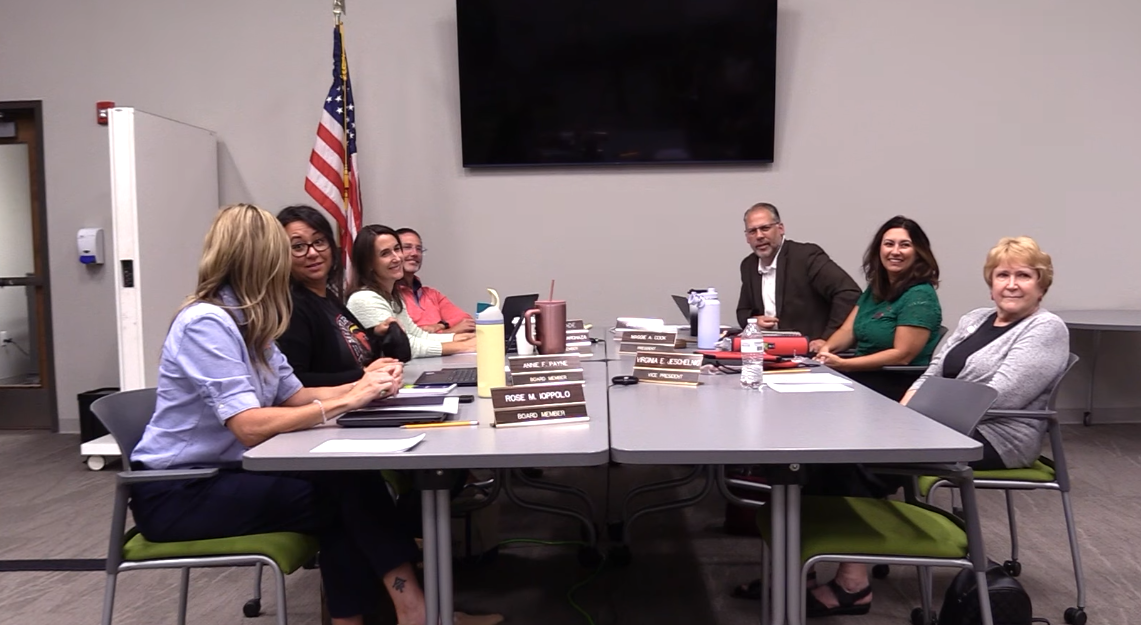
Cardinal Nation: How should the district approach consequences for negative behaviors, including bullying, when considering equality versus equity in punishment?
Cook: Bullying and mean behaviors, along with all other violations of our code of conduct can impact safety, climate, and be disruptive to the learning environment. Our students must have clear expectations for behavior. I advocate for clear and consistent rules and consequences for students who do not follow them. As an educator I understand that students come with different needs and circumstances. Holding students accountable for their actions may look different for each student, each incident should be addressed with purpose and with the goal to teach better behavior. I am a proponent for involving families and students in goal setting and support to improve behavior. I am pleased with the progress that our ad hoc committee on discipline has made and I will continue to review data to ensure that our approach is effective.
Haag: I support the initiatives of the Ad Hoc Discipline Committee which met again recently as well as the addition and expansion of the SRO program. These are positives and reflect community cooperation with school administration. That being said, most policies regarding negative behaviors including bullying focus on things that have already occurred, outputs rather than inputs. I believe we need to focus on inputs – a relentless focus on kindness. Some of the best teachers I have known understand this, they create classrooms where unkind behaviors are never ignored, always addressed thoughtfully with replacement behaviors. As a unit principal at Mentor High I spent a great deal of time dealing with student behavior and came to understand that successful discipline is based on creating relationships before punishment. Equity and communication with students and parents is essential in creating the ethos of kindness required for effective learning.
Hardesty: Equal punishment looks great on paper, X behavior = Y punishment. In reality, it is rarely practiced because it eliminates the circumstances, personal situations, and intent. To be clear, negative behaviors, including bullying, absolutely need to be addressed and offenders need to have consequences for their actions, but equal punishment is not the best solution for all instances – especially when we are dealing with children. An equitable approach to punishment that is not innately lenient – it is a tailored approach that is designed to not just take circumstances into account, but to get to the root causes of the negative behavior. I have some professional experience and an educational background (I have a JD from CSU Law) in the criminal justice system, and I can extrapolate that experience to student discipline. Officers of the law regularly use discretion, they might give a speeding ticket to one driver, but let the next one they pull over go on a warning, a prosecutor may impose two different charges for a nearly identical violations and judges take a multitude of factors into consideration at sentencing such as background, family support, and recidivism risks. Equity in punishment is widely used because we do not live in a cookie cutter world where all offenses and offenders are the same. I believe our administration and staff should be afforded the same opportunity to provide a tailored approach to discipline for our children that our professionals in the criminal justice system are afforded for much more extreme offenses. As a member of the Ad Hoc Discipline committee, I have been paying close attention to the issue of punishment and it does and will continue to take a tailored approach that includes input from teachers, staff, and parents, the offenders, and those who are impacted by their negative actions. Consequences are important, and sometimes those consequences will be severe, but they should also be designed to improve behavior and build kids of strong character.
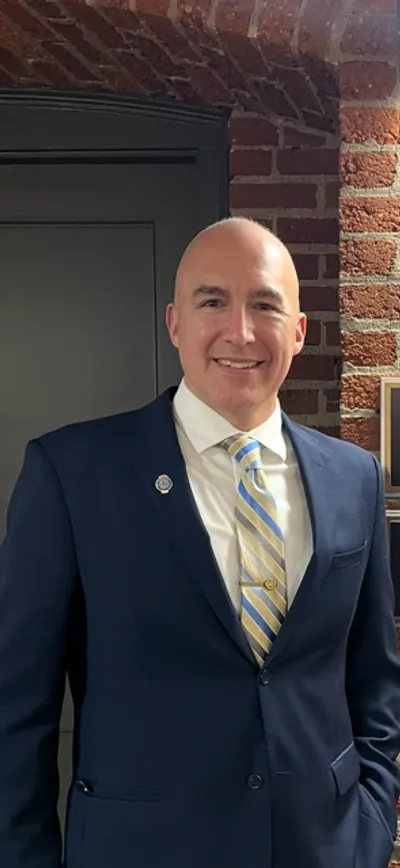
Izzo: The goal of discipline should be to correct misbehavior. Many, including myself, have been critical of the discipline policies throughout the district. I believe unenforced or weak policies have led to some of the negative attention this district has received. We need to institute more formalized, more adhered to policies of progressive discipline which will correct poor behavior. This will boost morale among the students and the staff. Using primarily restorative practices has proven ineffective and demonstrates a lack of support for teachers, students and staff who report misbehavior. There are few things which will cripple the morale of those attempting to do the right thing more than providing no consequences to those doing the wrong thing. We are doing a disservice to our staff, students and families if we don’t improve in this area and there are real consequences if we don’t get better.
O’Brien: As I mentioned above, there needs to be policy improvement and it must be administered consistently with commitment for consistent specific consequences for specific violations. When students are on school property, including the bus, they must be self disciplined, respectful of others in language and deed and polite. Based on what I have heard and observed, I believe there will need to be classroom instruction spelling out the expectations and informing the students of the consequences for violations so there are no surprises. A new culture of Core Values must be implemented.
Schutz: I will support strong administrative leadership to enforce existing policies and create a culture that values order, respect, and learning for all students.
Cardinal Nation: How do you see current property tax policies in Ohio affecting school funding and levies in our district, and what would you work to change?
Cook: This week, on October 1, 2025 the Ohio Senate voted to override a veto by Governor Mike DeWine which will restrict the use of some kinds of tax levies. Fixed-sum emergency, substitute emergency levies, and replacement levies will no longer be proposals that public schools can ask for voters to approve. As a board member I will work with our CFO to determine if and when a levy needs to be considered. With the new restrictions, our district has less choices to consider and we will need clear communication with the community to help everyone understand what our financial needs are and what is being recommended. Our district needs to continue to communicate our need to fund public schools and if property taxes are eliminated or reduced, we must advocate to the state to provide replacement funding.
Haag: Ohio has been non-compliant with court orders (DeRolph decision, Ohio Supreme Court 1991) regarding school funding for decades, yet local property taxes still comprise over 70% of funding for our schools. Some models, such as income tax increases, would likely be more expensive for most property owners in Mentor. This situation appears unlikely to change. Board members do have opportunities to advocate for funding for schools in Columbus, have done so, and should continue to do so. The board needs to have a united front, work closely together to study the best ideas being employed nationwide, and advocate on behalf of our schools.
Hardesty: On Wednesday, October 1, the Ohio Senate voted to override Governor DeWine’s previous veto to abolish replacement and emergency levies, in addition to other changes to property taxes that diminish potential taxpayer support of public schools. These changes only exasperate the funding challenges that the abandonment of the Fair School Funding Plan had already created. Essentially, public schools have fewer ways to ask the community for financial support. In response to question three posed by Cardinal Nation, I stated that funding was the biggest challenge facing our schools; you can find my responses to how I would work to solve the funding issue in full there. I will reiterate here that it is imperative that we be proactive and be incredibly intentional and careful in our budgeting while never abandoning the integrity of our academics and support of our students. I will unfailingly stand up for our kids, district, and our community, when our state leaders will not.
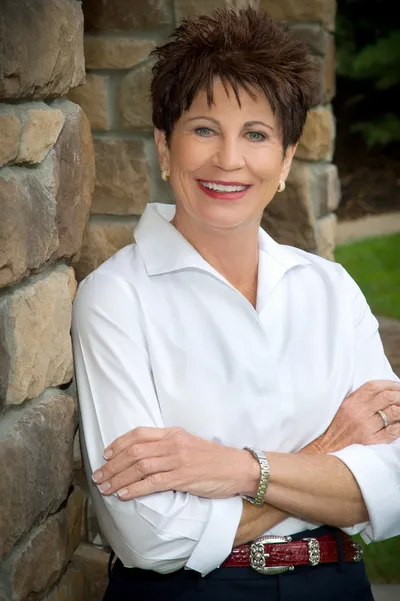
Izzo: As I noted above, I believe this to be the most critical issue facing the district as we are largely supported by levies which have been passed by our fellow residents. Unfortunately, the tax policies in this instance are outside of our control. We need to work on ensuring any plan to reduce property tax revenue is accompanied by a plan to help replace the loss. The existing relationships I have with county and state officials involved in making these decisions will ensure that Mentor Schools has a seat at the table in these discussions. I will do all in my power to help make sure a plan is in place to move forward after any changes in property taxes are passed. With all that said, we will look at ways to reduce expenses in areas where there is excess spending or the potential to consolidate services. We need to do this now to be prepared for any changes that come.
O’Brien: This is a hot topic currently. Schools need funding and currently there are more questions than answers. The fact is that according to the Ohio Constitution schools are to be funded by the State. I believe that the governing entities of Ohio will need to address this variance. But additionally there are always opportunities within organizations for eliminating waste and I know that the process has had some recent success. I am confident that more improvement can be achieved.
Schutz: It is imperative that all members of the Board of Education stay current with state initiatives regarding any funding changes that impact our current system. The Board of Education communication with state officials will enable Mentor Schools to stay abreast of any changes that may negatively impact our schools.
Cardinal Nation: Do you see potentially controversial books and media as a threat to student safety, and how would you plan to address the question of censorship in schools?
Cook: I am proud of the strong policy that I proposed to give parents control on which books are restricted for their own students. The adopted policy notifies parents by email when their child takes a book out of the library. In addition, parents that wish to opt into our restrictive check out policy program, sign a permission slip for the specific book their child has selected before they can check it out of the library. This policy has given parents control of what their children are reading. In addition, any parent can opt their child out of required reading within the curriculum and an alternate assignment will be provided. I believe that parents have the right to limit what their children read, however I also believe that for our older students, controversial books often tackle complex social issues that are crucial for critical thinking and empathy. Shielding students entirely can limit their ability to navigate the world responsibly. Our books are carefully curated by a licensed librarian and censoring books on the personal beliefs of one person means not respecting another person’s right to disagree.
Haag: This situation has been settled with the Red/Yellow decision adopted by the current board which puts library book selection in the hands of parents. I am in favor of parents having decision making responsibility in the choice of books their own children read. I am also in favor of a diverse and responsive selection of materials to inspire students, and trust that we have the professionals in place in our libraries, classrooms and curriculum departments to create and maintain such a collection.
Hardesty: I do not see potentially controversial books and media as a threat to student safety because at Mentor the parents have the right to restrict access to any book that the parents deem inappropriate. This notification system can be opted out of if the parent does not want to restrict access for their child. I see this as a great compromise that protects the rights of all parents while ensuring access to all books and media for those families that want it. Parental rights are protected and our community’s families make their own choices on what is appropriate for them. If elected to the board, I will continue to support the notification system and discourage unnecessary removal of materials from our libraries and classrooms.
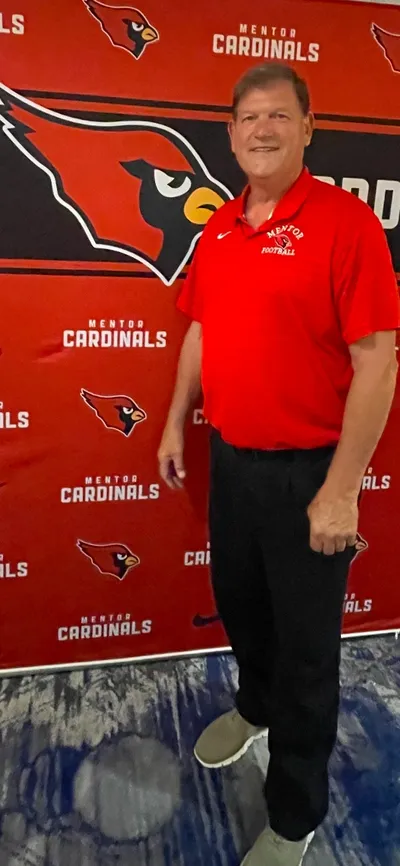
Izzo: I believe in parental rights and the freedom parents have to teach and raise their children as they see fit within the confines of the law. I also believe it is not the responsibility of a school district to teach children about some of the “controversial” topics included in some of the books and media frequently debated at school board meetings. It seems to me that some of the curriculum proposed and enacted infringe too far into the right of a parent to teach their children about a topic such as gender identity or sexual preference. Parents need to be more involved and the district needs to be more transparent when these topics are involved in the curriculum so that when a topic presented may be considered “controversial”, the student’s parent has the ability to be involved.
O’Brien: There are already criteria for what is age appropriate in the areas of music and movies at school. I believe age appropriateness should be applied with books as well. This area has recently been addressed by passage of new law that places limits on certain books. There is also the need for parental approval. I support parents being involved.
Schutz: While I do not see controversial books as a threat to student safety, I see it as a threat to good moral standards. I do not support censorship; however, I do support age-appropriate media content at each grade level at every school.
********************

